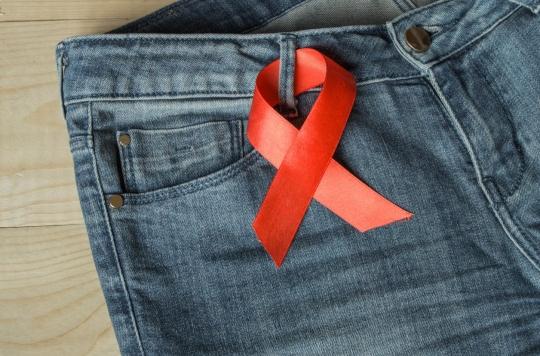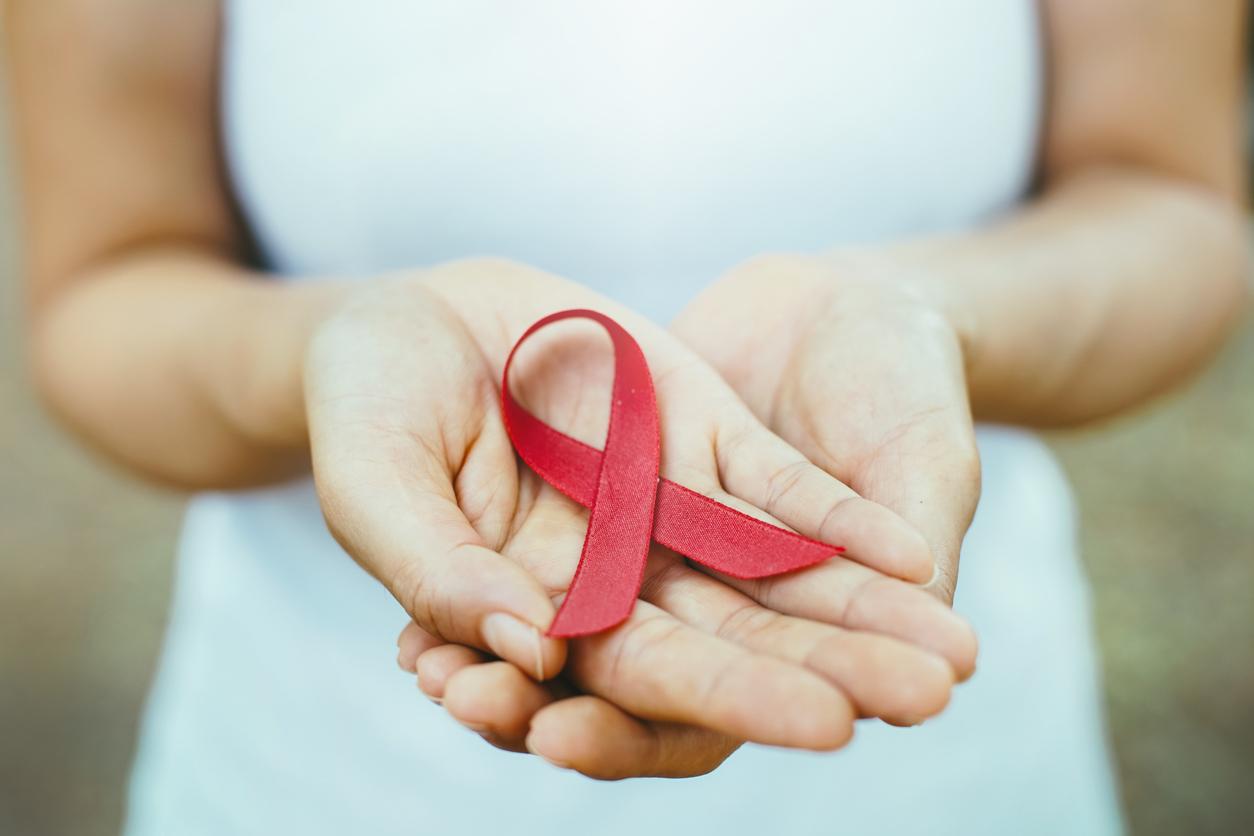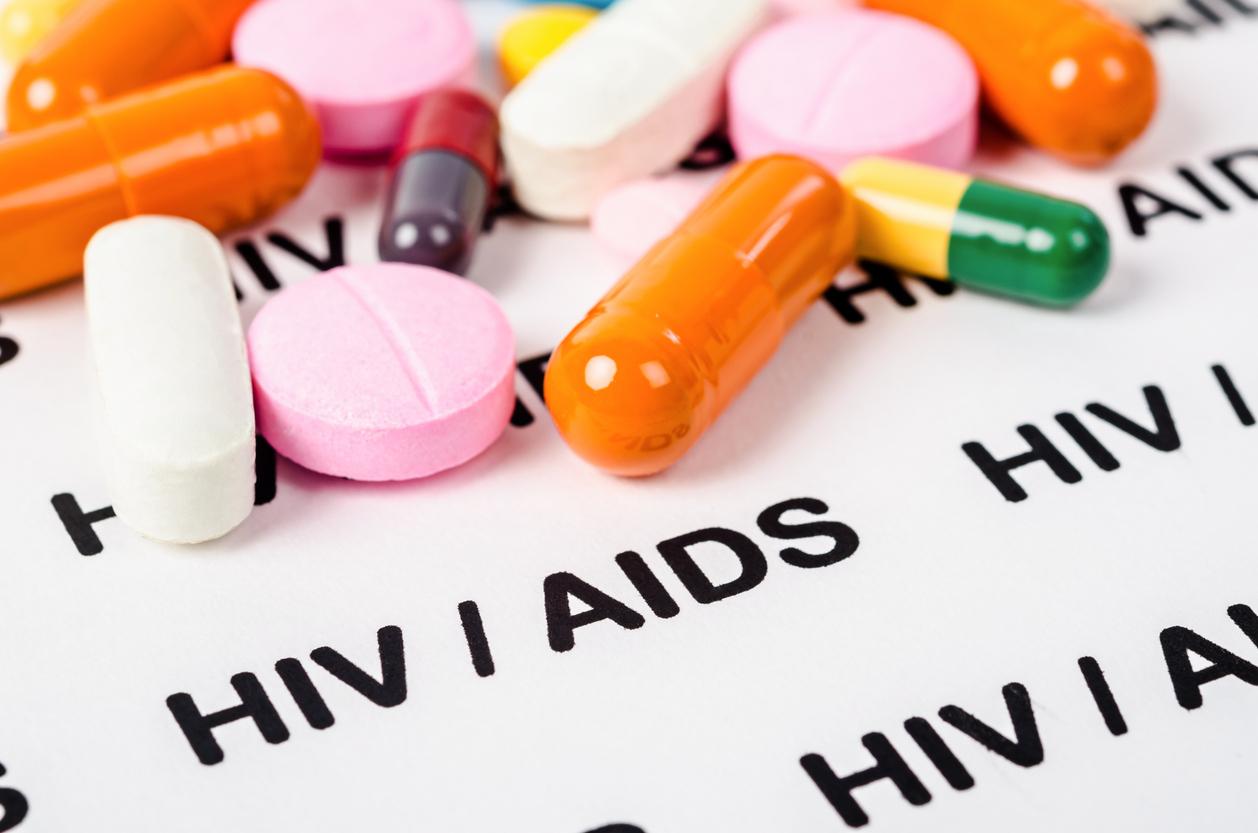Transmission by a simple kiss, by sharing a person’s glass … false information related to the AIDS virus is increasing in a worrying way.

- 33% of young people surveyed believe they are poorly informed about HIV/AIDS, an alarming increase of 22 points compared to 2009.
- 25% consider that there are drugs to cure AIDS.
- 32% of young people believe that HIV can be transmitted by having safe sex with an HIV-positive person.
- 20% still believe that the emergency contraceptive pill can prevent the transmission of viruses.
A few days before the Sidaction 2021 weekend (March 26, 27 and 28), the association is publishing the results of a survey carried out by Ifop among young people aged 15 to 24.
In 2021, 67% of young people consider themselves well informed about HIV, a drop of 7 points in one year. “The erosion already observed last year continues, we have reached the lowest score since our first survey in 2000”, observes Florence Thune, CEO of Sidaction. For example, only 51% of respondents feel well informed about where to go to get tested, a decrease of 20 points compared to 2014.
Misconceptions and false information related to the AIDS virus are increasing alarmingly. 24% of 15-24 year olds believe that the AIDS virus can be transmitted by kissing an HIV-positive person, an increase of 9 points in 2020. 23% of them (compared to 15% in 2020) believe that HIV is transmitted sitting on a public toilet seat, and 18% believe that HIV is transmitted by drinking from the glass of an HIV-positive person.
Omnipresence of Covid-19 in society
According to experts, these figures can be explained, among other things, by the omnipresence of Covid-19 in society. “Few topics emerge and are covered outside of COVID-19, which imposes its pace and takes up all the media space. The issue of HIV/AIDS, already not very visible before the health crisis, is even more absent from the media radars” , explains Frédéric Dabi, deputy general manager of the IFOP.
This context increases the minimization and invisibilization of the AIDS virus among respondents. 63% of respondents express fear of HIV/AIDS in 2021, up from 72% a year ago. “This is the lowest score since the start of the barometer, we see a drop of 16 points in 2 years”, continues Frédéric Dabi.
Young people aged 15 to 24 also continue to develop the “superhero syndrome”. They feel invincible against the AIDS virus. 41% of respondents believe that there is less and less contamination among 15-24 year olds, yet this segment represents 13% of new discoveries of HIV in 2019, a figure which has stagnated for several years.
Resume preventive actions
“We fear that this absence of the question of HIV on the various information channels could have consequences on the preventive practices of young people. only 35% explain it by the prior performance of an HIV test by both partners, a decrease of 14 points compared to 2020″explains Florence Thune.
“The fight against the coronavirus epidemic cannot eclipse another. It is urgent to resume actions to prevent and raise awareness of HIV/AIDS and sexual health among 15-24 year olds, and thus avoid a worsening of the HIV epidemic among young people”, concludes Florence Thune.
Not enough dialogue with parents
Following a survey conducted by Terpan Prevention and Family Planning among 516 young people between 12 and 25, it appears that it is difficult to establish dialogue on sexuality between parents and children. In response to the multiple choice question “In terms of sex education, in your opinion, who has the greatest responsibility vis-à-vis the children?”, 62% answered: parents. More than half of these young people therefore think that it is their parents’ duty to talk to them about sexuality. The rest of the respondents think that it is the responsibility of the public authorities and the school. The role of parents is therefore recognized by their children, which should encourage them to address these issues as a family.
However, more than 42% of the young people questioned do not envisage a dialogue on their sexual life with their parents, for fear of being judged for the most part, but also because it is an embarrassing subject to approach according to them. Despite everything, it seems almost as difficult for parents to talk about it, since 50% refuse to address this subject.

.















